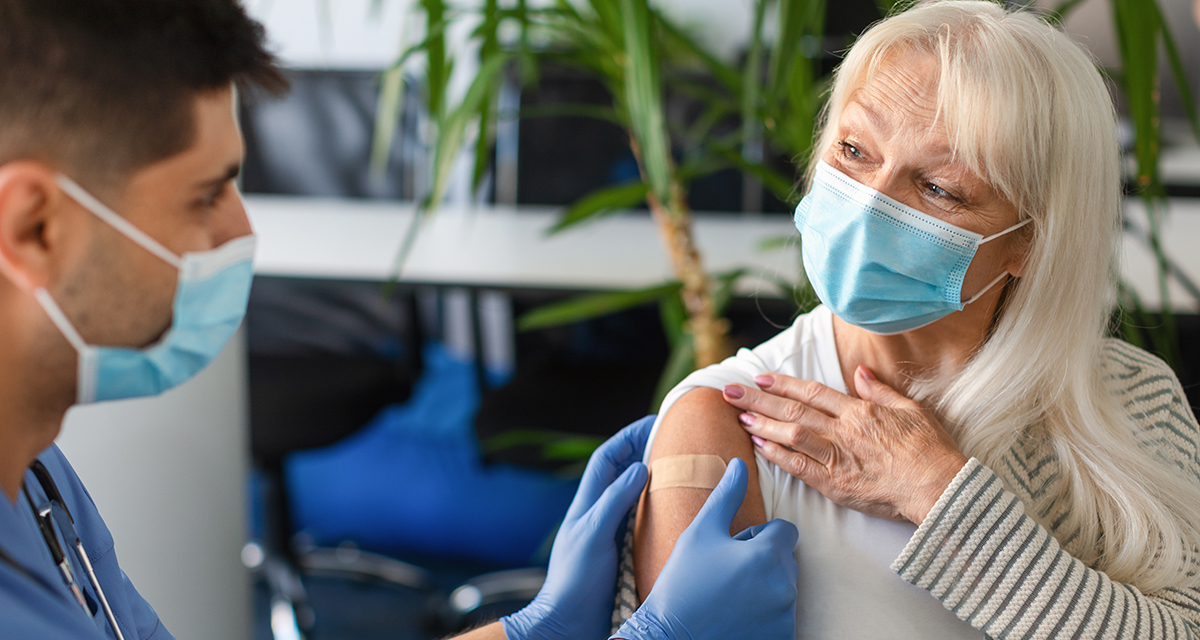As the coronavirus continues to impact lives around the world, the promise of COVID-19 vaccines brings new hope. In the United States, two vaccines are already in use and more are in development.
If you have type 2 diabetes, you might be wondering if you should get the Covid-19 vaccine when it becomes available. The short answer is “YES.”
We now know that people with type 2 diabetes are at increased risk of serious illness from COVID-19. The CDC defines severe illness in this case as hospitalization, admission to the ICU, intubation or mechanical ventilation, or death.
The statistics are startling. Of those who died from COVID-19 from February through May 2020, 40 percent had diabetes. Of those under 65, it was 50 percent.
The vaccine has the potential to protect you, your family and your community. To stop COVID-19, a majority of people around the world will have to become immune.
What is the difference between “live” and “mRNA” vaccines?
As of the date of this post, in the US there are currently two vaccines available, the Pfizer-BioNTech and the Moderna vaccines. These are mRNA vaccines, not “live” vaccines. mRNA vaccines work by telling your body to make the protein found on the surface of the virus that causes COVID-19. Your body then begins to make antibodies that fight against it if the virus ever returns. You cannot get COVID-19 from these vaccines. They will not alter your genes or DNA.
Both the Pfizer-BioNTech and the Moderna vaccines must be given in two doses. The Pfizer doses are given 21 days apart. The Moderna doses are given 28 days apart.
Are the vaccines safe for people with diabetes?
Both vaccines appear to be safe and effective for people with diabetes. Both have been thoroughly studied and authorized for emergency use by the FDA. Specifically:
The Pfizer-BioNtech trial included 3,150 people with diabetes (8.4% of trial participants).
The Moderna trial included 2,858 people with type 1, type 2, and gestational diabetes (9.4% of trial participants).
In terms of racial and ethnic diversity, the trials included more than 20% Hispanic or Latino participants, almost 10% African American participants, and almost 5% Asian participants.
Will the vaccine affect my blood sugar?
You may experience symptoms like a flu vaccine; fever, chills, fatigue, pain and swelling at the injection site. The COVID-19 vaccine can cause symptoms of illness that can lead to high glucose levels, so it is important to carefully monitor your blood sugar levels for 48 hours after you receive your vaccination. To date there have been no warnings regarding blood sugar and the COVID-19 vaccine.
Do diabetes medications affect the vaccine?
This has not yet been studied, however, there is no reason to think there would be an interaction.
When can I stop wearing a mask?
You should continue wearing your mask to protect yourself and those around you. No vaccine is perfect. As more people get vaccinated your public health authorities will make recommendations based on science and data to determine when masking is no longer needed.
As always, if you have questions about your specific health situation, please talk with your doctor. In the meantime, please continue to wear a mask, wash your hands, avoid touching your face, and maintain appropriate social distancing.


